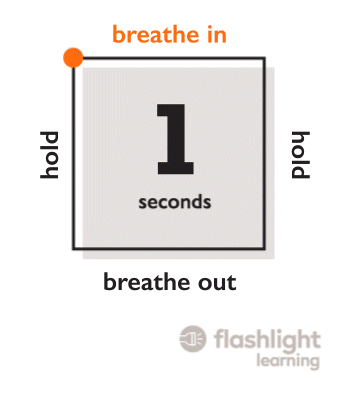Moving into the language-assessment season is an opportunity to establish a positive mindset for our language learners behind the why and to support our students in their individual language journey, which looks different for each student. Whether you’re tackling WIDA, ELPA21, TELPAS, ELPAC, AZELLA, OR NYSESLAT this school year, these high-stakes assessments can create noticeable anxiety for students. As educators, we can lower that stress barrier with a little strategic planning and some opportunities for students to practice the language skills demanded on state assessments.
So, take a deep breath and use the resources provided below to help students practice, set goals, and know what to expect on testing day.
1. Get Back to the Basics—Vocabulary
A robust vocabulary is key to improving students’ speaking and writing skills. Reviewing vocabulary introduced throughout the school year improves comprehension by increasing exposure to each vocabulary word, both in terms of quantity and context. And, while you’re focused on improving comprehension, create opportunities for multilingual learners to connect academic vocabulary to new concepts introduced in their content classes.
“Throughout the year, and especially leading up to the assessment, I review the major vocabulary words my students need to know with a quick, predictable routine, using my turn-your turn, visuals, and acting them out when possible. This really helps my MLs get the extra exposure to academic language they need, as well as building confidence in their speaking and writing skills.”
– Kelly Hagen, veteran English Language Development Specialist Tigard-Tualatin School District
Activity
Assign students to use sentence starters and frames to practice academic vocabulary with productive domains (speaking and writing). Use this free resource from Achieve the Core to help you get started.
2. Make Time for Think-Time
Processing time varies from student to student and from one learning style to the next. It’s not uncommon for students to need think-time, and language learners especially benefit from taking an extended pause. Encourage students to incorporate think-time into their language assessment strategy.
Activity
Teach the box breathing technique (also known as four-square breathing) to help students visualize what think-time looks like. This technique also helps minimize anxiety during testing.

3. Use a Language Assessment Checklist
Practice is key to improving language proficiency, but it’s also crucial in helping students prepare for the language assessment format. Even if students are prepared for the content of the assessment, schedule time to run through the practice test so you’re not taking any chances on everyones’ readiness (including yours) for the testing process. Familiarize students with the format of the assessment so they don’t get tripped up and give a wrong answer when they know the right one.
Activity
Use this state language assessment checklist to ensure that you have all the functional elements ready for testing day, and that your students know what to expect.
4. Connect Learning, Goals, & Assessment
Most students dread testing and older students may start asking why they have to endure the stress of high-stakes language assessments year after year. Being honest—that standardized testing gives students an opportunity to demonstrate their reading, writing, speaking, and listening skills—will help them cultivate a growth mindset as they reflect on their individual progress and the learning process in general.
“It is so important for our students to understand the purpose behind their English Language Proficiency Assessment, especially because students don’t receive feedback on their assessment until much later. I try to frame ELPA time as an opportunity to show off. Additionally, I use a goal-setting process to help my students see their growth over time and to set goals and create a plan for attaining their goals.”
—Timothy Blackburn, Title III Administrator, Tigard-Tualatin School District
Activity
Create a schedule for pre- and post-conferences with individual students. Whereas the pre-conference should focus on helping students prepare for their upcoming assessment, the post-conference should give them a chance to celebrate their successes after testing. Use the following prompts to guide your conversations:
Pre-Conference Prompts
- In which domain are you focused on showing growth this year?
- Can you think about ways we’ve practiced this in class together?
- What are specific ways you can show growth in the speaking (insert domain) section this year?
Post-Conference Prompts
- What were your areas of strength this year?
- Can you identify how you’re a strong reader (insert domain) in class?
- I’ve noticed you excelling as a reader when (give specific examples).
5. Emphasize Targeted Practice
As a final strategy, give students plenty of opportunities to practice foundational skills you know will be assessed. It’s not a matter of “teaching to the test” but of ensuring students are well-practiced, confident in their abilities, and prepared to show what they know.
Activity
Try out this sample assignment focused on analyzing a visual and making a claim. It’s one of the most common tasks students will encounter during their language assessment.
Conclusion
With the right preparation there is no reason why the state language assessment shouldn’t be an exciting time for students to show what they know. Hopefully these activities help empower language learners to do their best on testing day.

Mandi Morris
Mandi Morris is a veteran English Language Development educator and advocate for creating learning environments where multilingual learners feel valued and empowered by their individual language journey. Before becoming the Director of Curriculum & Instruction at Flashlight Learning, her experience encompassed teaching and coaching in Oregon, Bahrain, South Korea, Washington DC, and her home state of Florida.
Want all the resources from this article delivered to your inbox?
Fill out this short form and we’ll send you all of the resources including the Sample practice assignments and the state assessments checklist!




